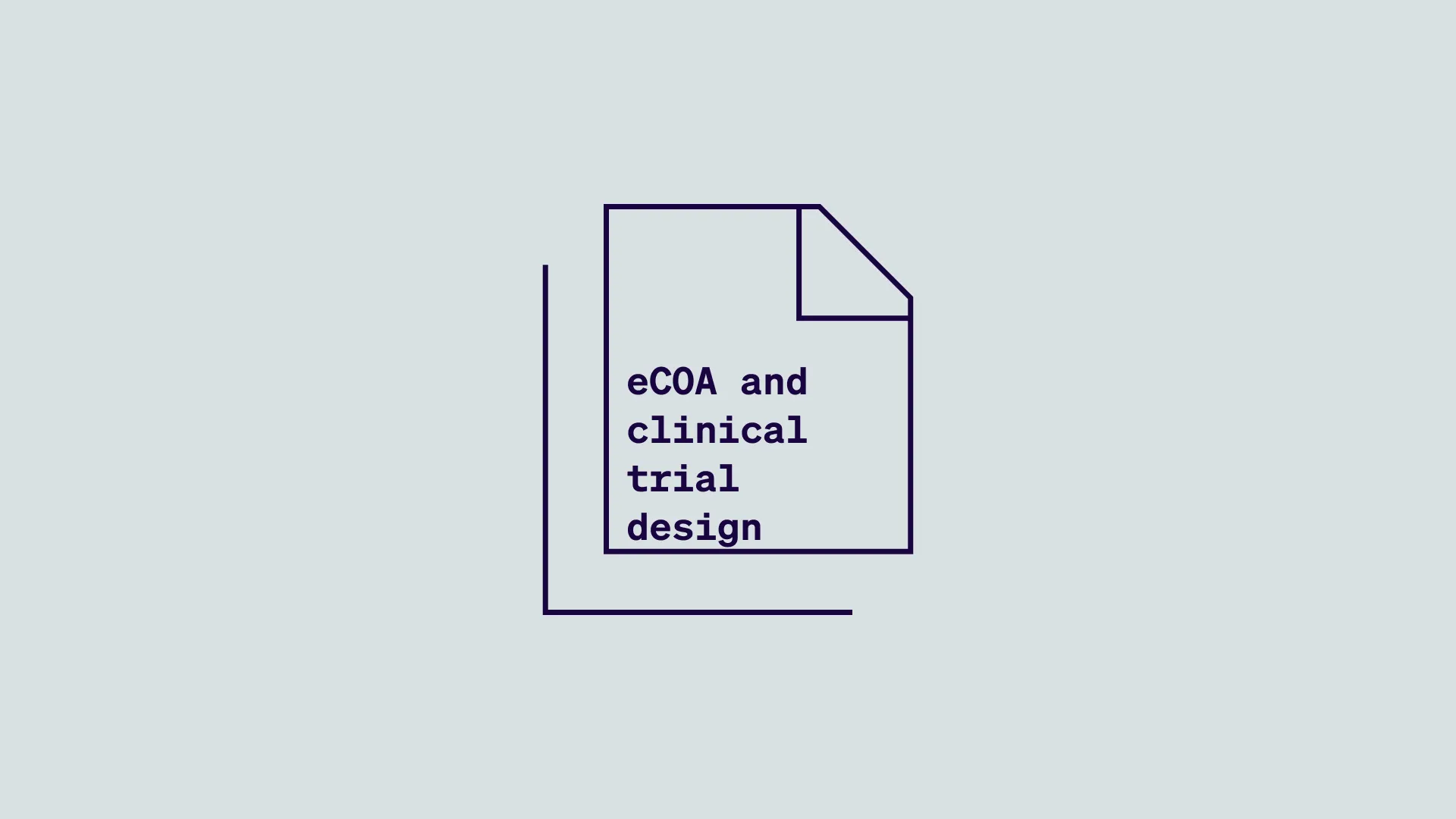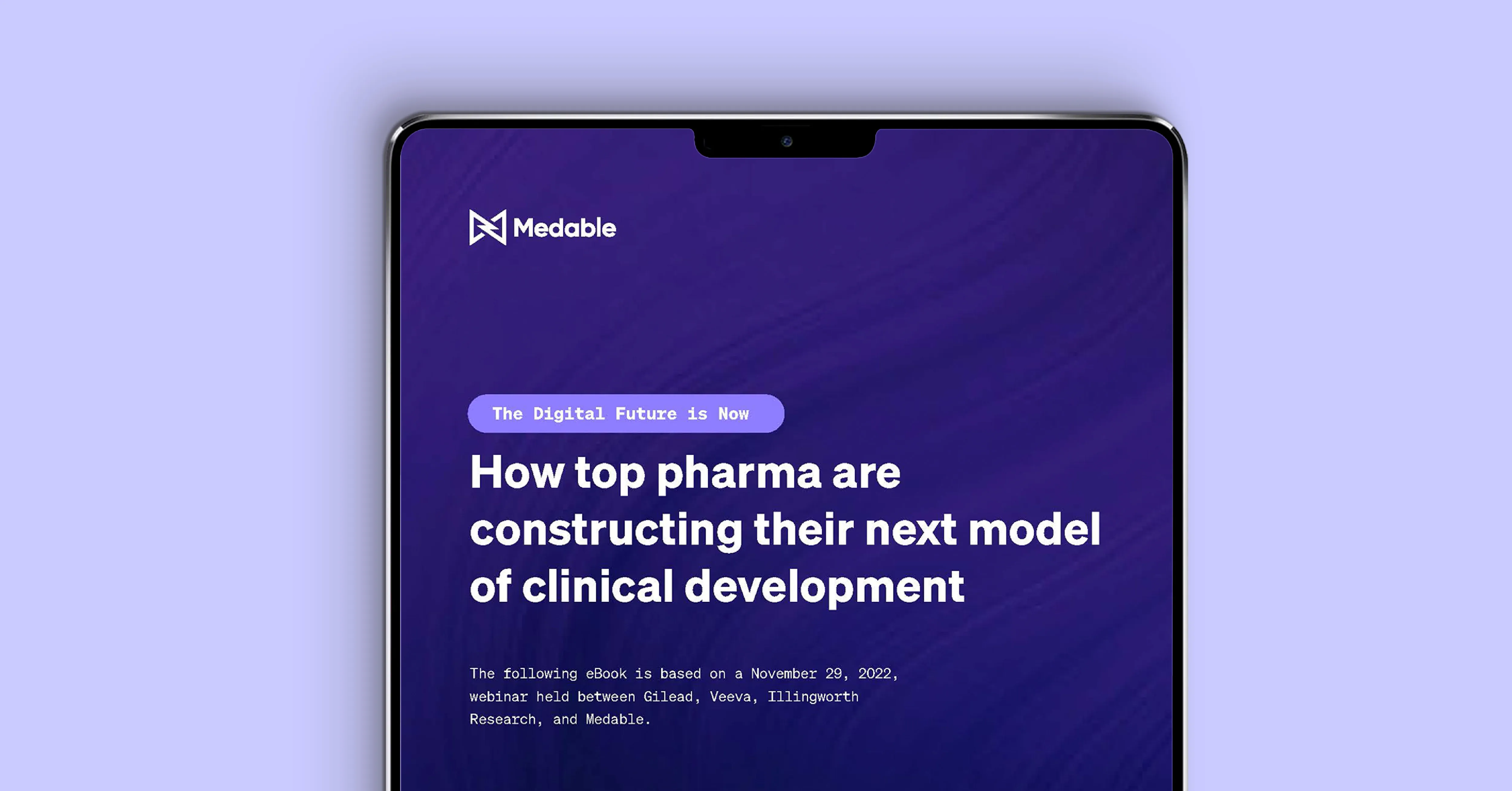Trial Design


Transforming clinical trials: The impact of eCOA on trial design
Discover how electronic Clinical Outcome Assessments (eCOA) are revolutionizing clinical trial design. This post explores how digital tools enhance patient engagement, improve data accuracy, and drive the shift toward decentralized clinical trials. Dive in to see why integrating eCOA is essential for modern, efficient clinical research.


Quality by Design: Better data using participant insights
Quality is not an afterthought within clinical trials. Instead, it is a required and integral part of the entire process beginning at the start of protocol design. While clinical trials will always encounter challenges in driving quality experiences and data, there exists one approach that’s backed by regulatory agencies and proven to lead to better outcomes.
This is a “quality by design” strategy that’s informed and driven by all stakeholders, including those most affected by your trial’s protocols - your participants, and sites.


You asked, we answered: How long to plan for your first eConsent implementation
Implementing digital informed consent (or eConsent) in clinical trials can be challenging and complex, but it doesn’t have to be! One of the main reasons for this difficulty is the traditional mindset and habits of conducting clinical trials. Clinical trials have long relied on paper-based informed consent process, and making the switch to a digital solution requires a significant shift in mindset and approach. Additionally, different stakeholders, such as study sponsors, ethics committees, regulators, sites and patients, may have different expectations, perceptions and requirements for eConsent implementation, adding to the complexity of the process. Therefore, careful planning, communication, and a thoughtful execution are essential for the success of an eConsent implementation and adoption in studies.


The Digital Future is Now eBook
According to Grandview Research,the hybrid and decentralized clinicaltrial (DCT) market will be worth more than 12 billion dollars by 2030. Sparked by the COVID-19 pandemic of 2020, the rapid ascent of patient centered technology and the digital and decentralized trials they’ve spawned has forever changed the landscape of clinical conduct.


Deploying a patient-first framework to accelerate recruitment & reduce overall trial timelines
Learn how to utilize digital data-flow designs in clinical trials to improve patient diversity and inclusion, increase operational efficiencies, enhance patient enrollment, engagement, and retention, and realize financial value.


Building trust between clinical trial stakeholders through a DCT framework
Industry experts from Pfizer, Advarra, and Medable showcase how to design a framework of decentralized offerings that provide greater ease of use, effectiveness, and flexibility for sites for every type of research setting; decentralized/hybrid, virtual, or in-person. In addition, they discuss how DCT solutions and site partners are creating an impact to improve diversity and access while optimizing clinical research for patients.


How to bring patients into the product journey
Technology today has given patients unparalleled access to information and influence over their health care. As a result, many clinical trial sponsors now recognize the importance of taking a “patient centric” approach to clinical trials. That means designing a treatment, clinical trial, or other health solution centered around the patient, and includes getting feedback from patients, caregivers, families, and advocacy groups every step of the way.
In other words, it means treating patients as informed stakeholders whose participation is key to a successful trial and product following marketing authorization. Engaging patients and truly bringing them into the product journey has the power to transform the future of research and medicine. Read on to understand what patients expect from clinical trials today, and how to engage them throughout the product journey.



